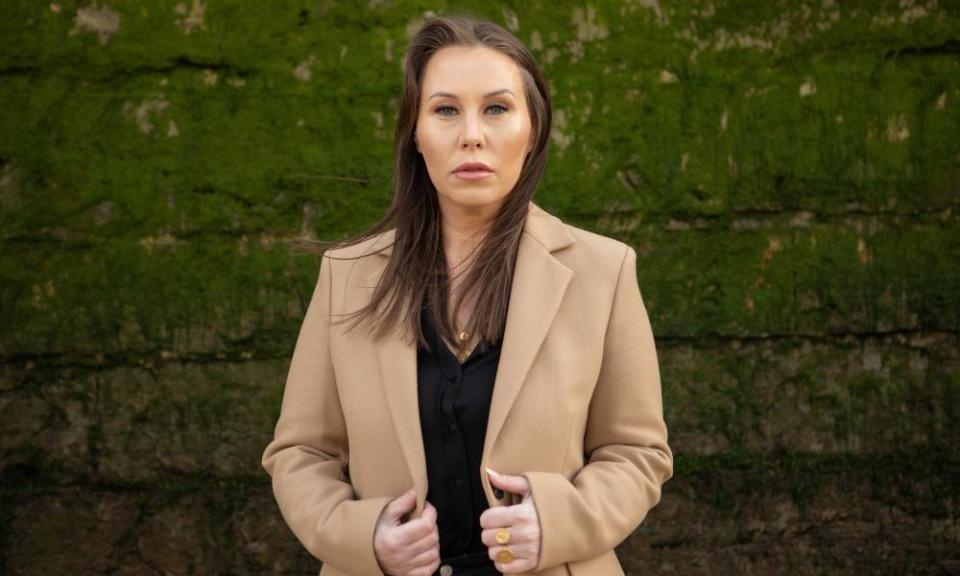‘Like sewage and rotting flesh’: Covid’s lasting impact on taste and smell

Four months after getting sick with Covid, Anne-Héloise Dautel couldn’t eat anything at all. “I just wanted to vomit, I was gagging at everything around me,” she said. “I couldn’t even stand my own smell. I was showering five times a day.” Coffee, toothpaste, shampoo and roast meat were the worst. By the time she went to hospital, she weighed just 46kg.
Severe weight loss and kidney failure are some of the impacts of smell and taste distortions which leave people unable to eat or drink things they loved, like coffee or bacon, because they smell like rotting flesh or sewage.
The loss of taste or smell was identified as a Covid symptom very early in the pandemic, and there is growing evidence that a substantial number of people go on to develop long-term distortions to their senses.
AbScent, a UK-based support group for people with taste and smell disorders, occupied a tiny niche before the pandemic, with 1,500 members. Now it has 76,000 worldwide.
Scientists at the Karolinska Institute in Sweden last week published a study that found nearly half of the infected people it studied in the first wave had experienced distorted smell, a condition known as parosmia. A third were less able to detect smells, according to the pre-print, which has not yet been peer reviewed.
The Office for National Statistics estimates that more than 500,000 people in the UK have been suffering Covid symptoms for more than a year.
“There’s been an explosion of these kinds of syndromes and symptoms,” said Simon Gane, a consultant rhinologist at the Royal National Ear, Nose and Throat and Eastman Dental Hospitals in London. “It’s much more widespread than before.”

Many sufferers of parosmia and dysgeusia – the distorted sense of taste – began to experience the condition weeks or months after recovering from Covid, he said. Some had developed a total loss of smell – anosmia – and had started to recover it.
“I felt I was losing my brain. They taught me to try to remember how to smell,” said Dautel, a 32-year-old architect who lives in London and spent 10 weeks at a hospital in Rennes, Brittany, being treated alongside stroke patients.
Ellie Phillips, a TV and radio presenter, had Covid in January 2021 then started to notice problems four months later. The 34-year-old abandoned her lockdown habit of going for coffee, then the odour of oil in a frying pan also became unbearable.
Her friends thought she must be pregnant – many women develop aversions to types of food during pregnancy – and then at a wedding reception she was confronted by a bruschetta laden with melted cheese.
“It was like sewage and rotting flesh,” she said. “I’ve smelt open cancer wounds – that’s the closest thing I can say. I was literally sick in the toilet for 20 minutes. I was too embarrassed to tell my friends. When I got home things got progressively worse.”
Phillips lost a substantial amount of weight while doctors tried to diagnose her illness. Now she is surviving on high-calorie protein shakes intended for cancer patients having chemotherapy.
Other cases are equally distressing for sufferers. Christine Dowling’s 16-year-old granddaughter cannot even drink water. Jane Cooper, an artist and marketing director, finds shampoo smells like rotting fish and rice like white spirit. For weeks she thought an animal had died in her flat. An NHS worker developed parosmia two months after losing her smell through Covid. “One of the hardest parts is being intimate with my partner as he doesn’t smell how I remember,” she said. “I couldn’t even bring myself to say this to him as I know how upsetting this would be.”
Many have turned for support to Chrissi Kelly, who founded AbScent after trying to recover her sense of smell after a viral infection in 2012. She has funded and conducted research into the condition with Dr Jane Parker at Reading University. Their most recent paper pinpointed 15 molecular triggers in coffee that trigger parosmia.
“Our olfactory sense is there to alert us to potential danger, and people with parosmia search for words like sewage, burning, electrics to describe it,” said Kelly. “When you question them more closely, they use those words to signify the greatest amount of disgust.
“But the impact goes much deeper. Often people don’t believe them, employers don’t believe them. But think about how important smell is to communicate.”
Dautel said she almost died after leaving her gas hob on. “My partner came back from a run and started screaming at me to get out of the flat.”
But smaller things can be dangerous too. “Morrisons are getting rid of the expiry date on milk and say people should be doing the sniff test. But it smells rotten to me anyway.”
There is no known cure, and although some parosmics find smell training can be helpful, it is not clinically proven. Dautel remains upbeat. She has started to enjoy food again, 15 months later, and has been trying to describe the indescribable smells she experiences. “It’s been a really long process, but today I ate chicken,” she said. “I’d never have been able to do that six months ago. And it was enjoyable. So there’s hope.”

 Yahoo News
Yahoo News 
